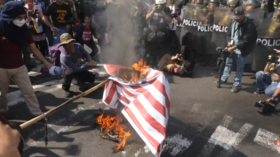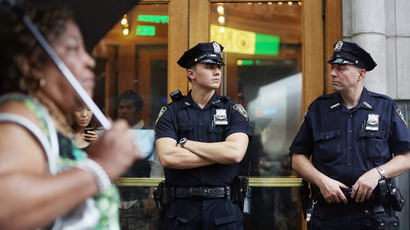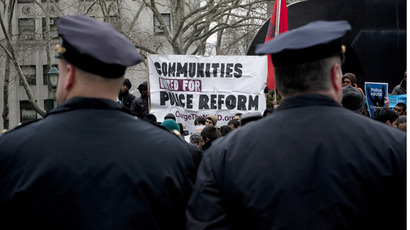New York City Council passes measures to put a leash on stop-and-frisk
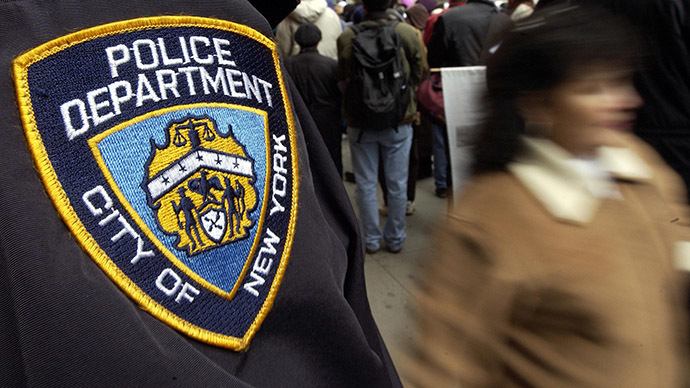
The city of New York has passed two measures meant to rein in NYPD's stop-and-frisk program by expanding the definition of racial profiling and enacting a seven-year departmental audit program. Mayor Bloomberg has vowed to veto both.
The New York City Council is seeking to create an independent
inspector general with the sole purpose of monitoring the New
York Police Department for seven years going forward. Such an
inspector would also be charged wtih proposing recommendations on
how to improve the department's operation.
In addition, the council will expand the definition of racial
profiling, thus allowing residents who believe they have been a
target to sue in state court.
According to Reuters, shortly after the vote Bloomberg promised
to veto both measures and force the council to hold another vote
to override his veto. Each of the measures passed through the
51-member council with at least 34 votes, which suggests they
should have the necessary two-thirds majority to override
Bloomberg’s veto.
Both the mayor and New York Police Commissioner Ray Kelly have
defended stop-and-frisk, which a federal judge decided was
unconstitutional in January 2013, despite criticism of racial
profiling, arguing that the frequency in stops attributed to
minority neighborhoods are linked to higher crime rates in those
city regions.
An analysis by the New York Public Advocate’s office of data
provided by the NYPD for 2012 has shown that the likelihood that
an African American detained for search would be found in
possession of a weapon was half that of a white person.
Data shows that the NYPD uncovered a weapon in one out of every
49 stops of white New Yorkers, while for latinos a weapon was
found for one out of every 71 stops, and for African Americans,
in one out of 93 stops.
Statistics gathered about the program show that in its history,
more young African-American men have been 'stopped-and-frisked'
than live in New York City, suggesting that many young black men
have been stopped by police on multiple occasions.
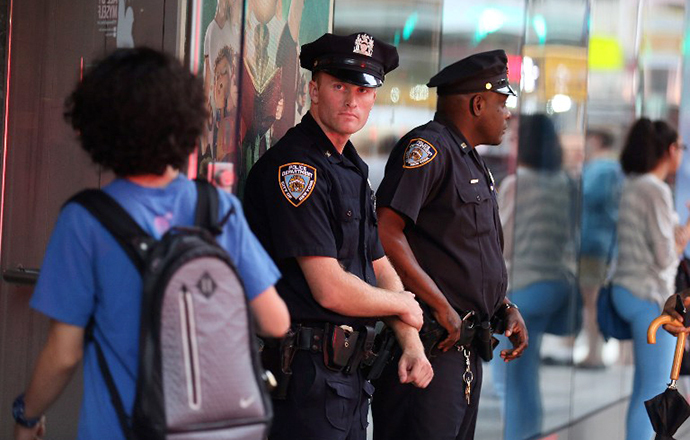
Stop-and-frisk, which proponents claim is aimed at reducing crime
by stopping, questioning and searching individuals suspected of
wrongdoing, has earned the ire of a number of minority advocacy
groups, as well as Democratic mayoral candidates who are vying
for the city’s top job as Bloomberg prepares to end his last
term.
Testimony by several New York police officers in connection to a
lawsuit mounted against the department allege that officers
regularly target young black men and other minorities by an
arbitrary notion of “reasonable suspicion.” Critics of
stop-and-frisk argue that the policy walks hand in hand with
racial profiling.
In March, following evidence provided by a leaked recording,
Officer Pedro Serrano, an 8-year veteran of the New York Police
Department, testified that during a meeting with Deputy Inspector
Christopher McCormick over his job performance he was
specifically told which individuals to concentrate on
investigating.
“I don’t have any trouble
telling you this: male blacks 14 to 20, 21,” said
McCormick.
Serrano’s testimony was presented as part of Floyd v. City of New
York, in which four plaintiffs claim they were racially profiled
by the NYPD. Four additional police officers presented evidence
for the prosecution in that case.
Mayor Bloomberg, like his predecessor Rudi Giuliani, has made
combating crime a centerpiece of his three terms in office. Since
Bloomberg took office in 2002 city data indicates a steady
decline in major felony offenses overall, which include murder
(including non-negligent manslaughter), rape, robbery, felony
assault and burglary. The number of robberies in 2002, for
example, were reported to be 27,229, and had dropped to 20,144 by
2012.
The particularly low murder rates for a city the size of New York
have been used by mayor Bloomberg and NYPD commissioner Kelly as
indications that controversial and unconstitutional police
tactics are effective. Still, according to 2012 FBI crime
statistics, the city falls somewhere in the middle for all
violent offenses - “violent” crime defined as rape,
robbery and assault in addition to murder.
In June the Obama administration made waves by extending its
support for a monitor to oversee the NYPD’s use of
stop-and-frisk. Bloomberg was quick to slam the administration’s
move.
“We think that a monitor would
be even more disruptive than an IG (inspector general),”
Bloomberg said at the time.
“It just makes no sense
whatsoever, when lives are on the line, to try to change the
rules and hamper the police department from doing their
job,” he added. According to the mayor, similar oversight
efforts in Philadelphia have hampered efforts to combat crime.








